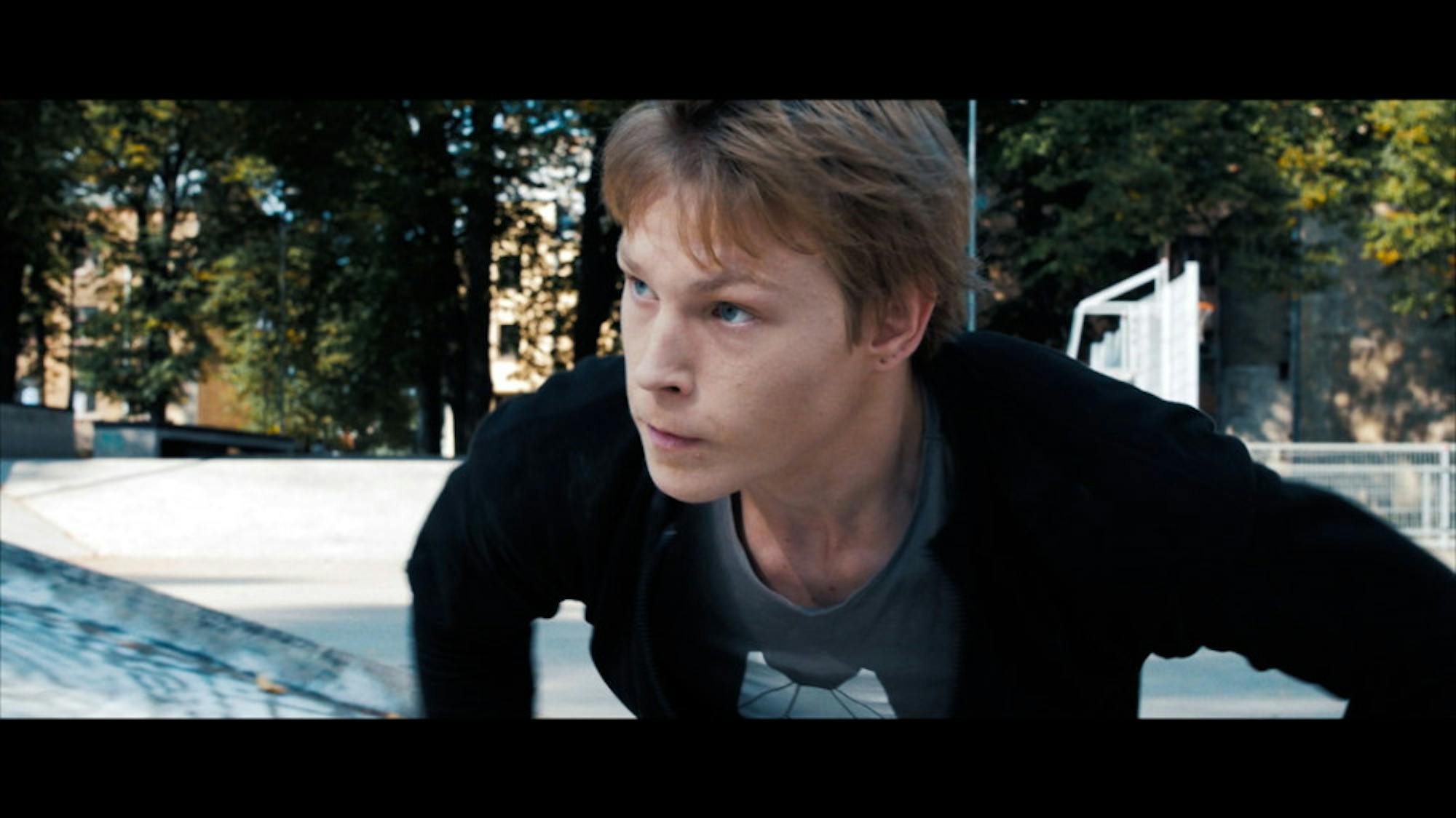Content Warning: This article mentions sexual violence.
Sept. 28 marked the 20th anniversary of the Manhattan Short Film Festival, the only film festival screened simultaneously across four continents. This year, the festival was held in over 300 venues across the United States, Europe, Australia, New Zealand, Canada, and South and Central America. The Museum of Fine Arts hosted the Boston screening.
Each year, the festival screens 10 finalists selected from all film entries. This year, the eclectic selections represent various film genres, including fantasy, horror, comedy, stop motion animation, action and nonfiction. The list of represented countries includes New Zealand, Spain, the United States, the United Kingdom, Latvia, Syria, Italy, Switzerland and Georgia.
The festival allows the audience to vote for the gold, silver and bronze medal winners and the best actor after each screening. This year’s gold medal was claimed by Georgian fantasy film “8 Minutes.” The silver and bronze prizes were respectively awarded to “Viola, Franca” and “Mare Nostrum," and the Best Actor Award was given to Aleksandrs Ronis for his performance in “Just Go!” Despite the cinematographic and cultural differences among the three award winners, they thematically unite in their commemoration of heroes during catastrophic times.
The Gold Medal winner “8 Minutes” is a fantasy film that reimagines the relationship between humans and nature. During the eight minutes before an eternal blackout on earth, a magician father performs his last magic show for his son. The film shows the magician patiently dressing while others riot both physically and emotionally during the last eight minutes of life with sunlight. The accompanying soundtrack enhances the film’s paradoxical dynamic: whimsical background music is played on top of the serious TV news reports regarding the apocalypse.
The magician’s calmness and playfulness radiates a powerful sense of compliance with the impending blackout. The film deviates from the common post-industrial belief that nature and humans are always in conflict, and echoes with Daoist philosophy that the two are essentially one. The ending reveals that the father frames the blackout as a result of his magic. Such light-hearted interpretation of the natural disaster transcends concerns regarding life and death, and approaches nature from a spiritual and non-confrontational perspective.
Both “Just Go!” and “Viola, Franca” are nonfiction films that honor perseverance and activism. The former tells the story of Just, a young amputee who relentlessly chased two robbers on his hands. The short, quickly-shifting action shots in “Just Go!” resemble those incorporated in commercial feature films such as “Fast and Furious," emphasizing the protagonist’s physical fitness.
“Viola, Franca” recounts the experience of Franca Viola, a rape victim who spoke out to end the rehabilitating marriage convention in Italy. One of the most appalling scenes in the film combines the visual and aural beauty of Franca’s idyllic farm with her wailing screams of pain. This juxtaposition criticizes Italian society’s dismissal of rape crimes in the 1960s.
Like “Viola, Franca,” “Mare Nostrum” also targets a human rights issue. The film exposes the tragedy of loss during the Syrian refugee crisis. The film shows a Syrian father’s heartbreaking experience forcing his 6-year-old daughter into the ocean every day in order to prepare her for their impending sail. The shots, consistently dominated by a warm yellow, are reminiscent of old photographs. The nostalgia foreshadows the pair's future, where they cannot keep each other’s company beyond memory. The film features poetic seashore motifs to highlight the pain of leaving one’s beautiful homeland for a foreign territory. The aesthetic choices in “Mare Nostrum” emphasize that both characters lose home not only in Syria, but also in each other. The lack of dialogue in the film literally embodies inexplicability of the refugee’s pain.
Although it did not win any award at this year's festival, the stop-motion animation film “In A Nutshell” is worth mentioning for its distinct narrative style. Unlike all other finalists, “In A Nutshell” does not present a story to the audience. Rather, it offers the audience disparate images, and allow them to connect the dots for themselves. The images unite in that they all represent parts of the contemporary material culture. The director views his film as “a criticism of the outrageous materialism of our culture.” However, there is a paradox between his statement and his film. The film groups together images of objects with similar functional and cultural significance, which indicates that the objects possess intrinsic value apart from their status as material objects. Such a perspective interprets objects as vivid documents of our history instead of some disruptive outlier in it. Although the director might disagree, the film can be seen as thematically similar to Chinese artist Song Dong’s “Waste Not" (2005) an installation that examines objects’ ability to embody their owners.
In general, most of the ten finalists in the 2017 Manhattan Film Festival place their protagonists in challenging if not downright alarming situations. By doing so, some of them critique the historical factors that inflict such pain on their protagonists, while others celebrate their protagonists’ tenacity in withstanding institutional and environmental pressure. The Manhattan Short serves as an annual assessment of both social conditions that are specifically contemporary and historical events that still bear apparent relevance to our time.
MFA screens 20th annual Manhattan Short Film Festival

'Just Go!' is a short film about a young man who lost both his legs in a childhood accident who comes to the rescue of the girl he loves when she is victimized by villains.





